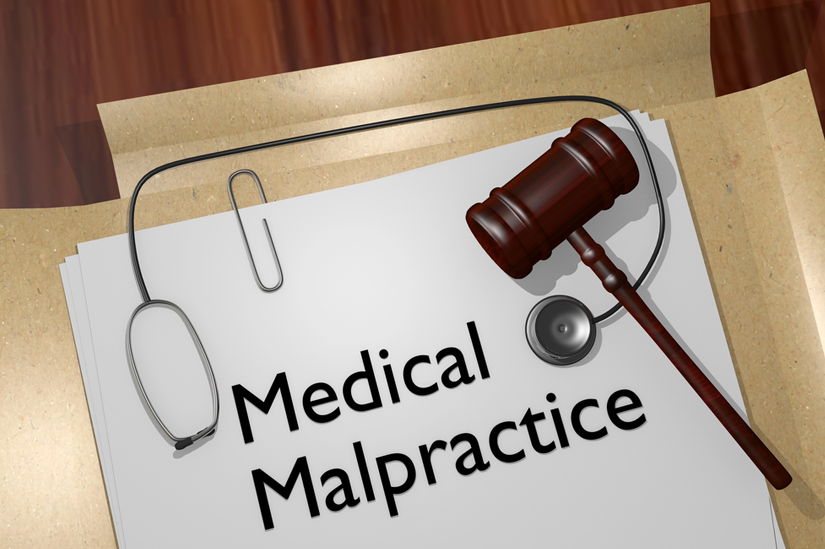Wrongful Death Vs. Medical Malpractice: Learn The Difference
By Doug Standriff on July 24, 2025

Losing a loved one due to someone else’s actions is devastating. Understanding the legal options available can feel overwhelming. The distinction between wrongful death vs. medical malpractice is an important part of personal injury law, particularly when negligence contributes to a fatal outcome.
Both terms involve harm caused by negligence, but they apply to different circumstances and require different legal approaches. Knowing the difference can help you decide the appropriate course of action if a loved one has died due to someone else’s negligence.
What Is Medical Malpractice?
Medical malpractice occurs when a healthcare provider fails to meet the accepted standard of care, resulting in harm to a patient. This negligence can take many forms, including surgical errors, misdiagnoses, incorrect medication, or failure to follow proper medical procedures.
When a patient survives, they may file a personal injury claim for damages. If the patient dies as a result of medical malpractice, the case may transform into a wrongful death claim. In this situation, the deceased’s family or estate seeks compensation for their loss.
What Is Wrongful Death?
Wrongful death is a legal term used when someone dies due to the negligence or misconduct of another party. While medical malpractice can lead to wrongful death, it is not the only situation where wrongful death applies.
Any incident in which one party’s negligence results in another person’s death may give rise to a wrongful death claim. Examples include car accidents, workplace injuries, defective products, and criminal acts such as homicide. The central factor in a wrongful death case is that the death could have been prevented if the responsible party had exercised reasonable care.
Wrongful Death vs. Medical Malpractice: Key Differences
The main difference between medical malpractice vs. wrongful death lies in the focus of the legal claim.
Medical malpractice refers specifically to mistakes or negligence by a healthcare provider. This can involve issues such as failure to diagnose, administering the wrong medication, or surgical mistakes. If a person dies due to such errors, it becomes a wrongful death case, but the underlying cause remains medical malpractice.
On the other hand, wrongful death can encompass any cause of death resulting from negligence, not limited to medical care. It could involve any form of careless behavior that leads to fatal consequences, such as a car accident caused by a distracted driver or an accident at work caused by unsafe working conditions.
Overlap Between Medical Malpractice and Wrongful Death
Medical malpractice can sometimes result in wrongful death and create an overlap between these two types of legal claims.
For example, if a doctor misdiagnoses a condition and that misdiagnosis leads to the patient’s death, the surviving family members can take legal action. They may file a medical malpractice claim for the errors that caused the injury. They can also pursue a wrongful death claim for the loss of their loved one.
It is important to remember that wrongful death claims can arise from various circumstances, not just healthcare errors. For instance, if someone dies in a car accident caused by another driver’s negligence, a wrongful death claim may be filed. This type of claim would not be related to medical malpractice.
Pursuing Compensation in Medical Malpractice Cases
When a healthcare provider’s mistake results in a patient’s death, families can pursue compensation through a wrongful death claim. The claim must demonstrate that the provider’s negligence directly caused the death.
Damages in a medical malpractice case often include medical bills, funeral expenses, lost income, and the emotional pain and suffering caused by the death. Proving medical malpractice requires showing that the healthcare provider failed to meet the accepted standards of care.
In these cases, surviving family members can seek compensation for both emotional and financial losses caused by the death of their loved one.
Proving a Wrongful Death Case
In both medical malpractice and other wrongful death cases, the burden of proof is on the plaintiff.
To win a wrongful death case, the plaintiff must prove that the defendant’s actions directly caused the death of the decedent. In a medical malpractice case, this means proving that the healthcare provider’s negligence resulted in death.
In some cases, expert testimony from medical professionals may be required to establish the standard of care that should have been followed. For non-medical wrongful death cases, evidence of negligence, such as faulty products or unsafe conditions, will need to be presented.
Get the Legal Guidance You Need with Bergen Law
If you believe that your loved one’s death was caused by medical malpractice or another act of negligence, Bergen Law is here to help. Our team, led by Certified Civil Trial Attorney Douglas Standriff, specializes in NJ civil litigation and wrongful death claims. We will help you understand your legal rights and fight for the compensation you deserve.
Contact us today to speak with a professional wrongful death lawyer in Bergen County and take the next step in seeking justice for your loved one.
